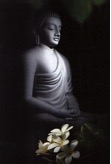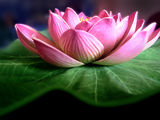The Eight Worldly Winds (The Eight Vicissitudes)
From the Mungalla Sutta
This time of year in Tucson is daily filled with breezy or windy weather, which blows dust in the air, knocks over trash cans and carries them away, burns and stings eyes, and much more. It often makes a mess and causes us irritation; and, interestingly, some of us enjoy its impact, variability, spacious blowing, and unexpected outcomes.
We are all different and so how we relate to these life winds varies, as do the winds themselves.
The definition of vicissitude is “the quality or state of being changeable, mutability; natural change or mutation visible in nature or in human affairs” or “a favorable or unfavorable event or situation that occurs by chance; a fluctuation of state or condition the vicissitudes of daily life; a difficulty or hardship attendant on a way of life, a career, or a course of action and usually beyond one’s control; alternating change, succession.” These vicissitudes seem to be endless and out of our control; yet how we choose to respond to life’s conditions and events may be part of our path to cultivating happiness or being dragged down into a whirlwind of suffering. Continue reading →



 What is Awakening?
What is Awakening?